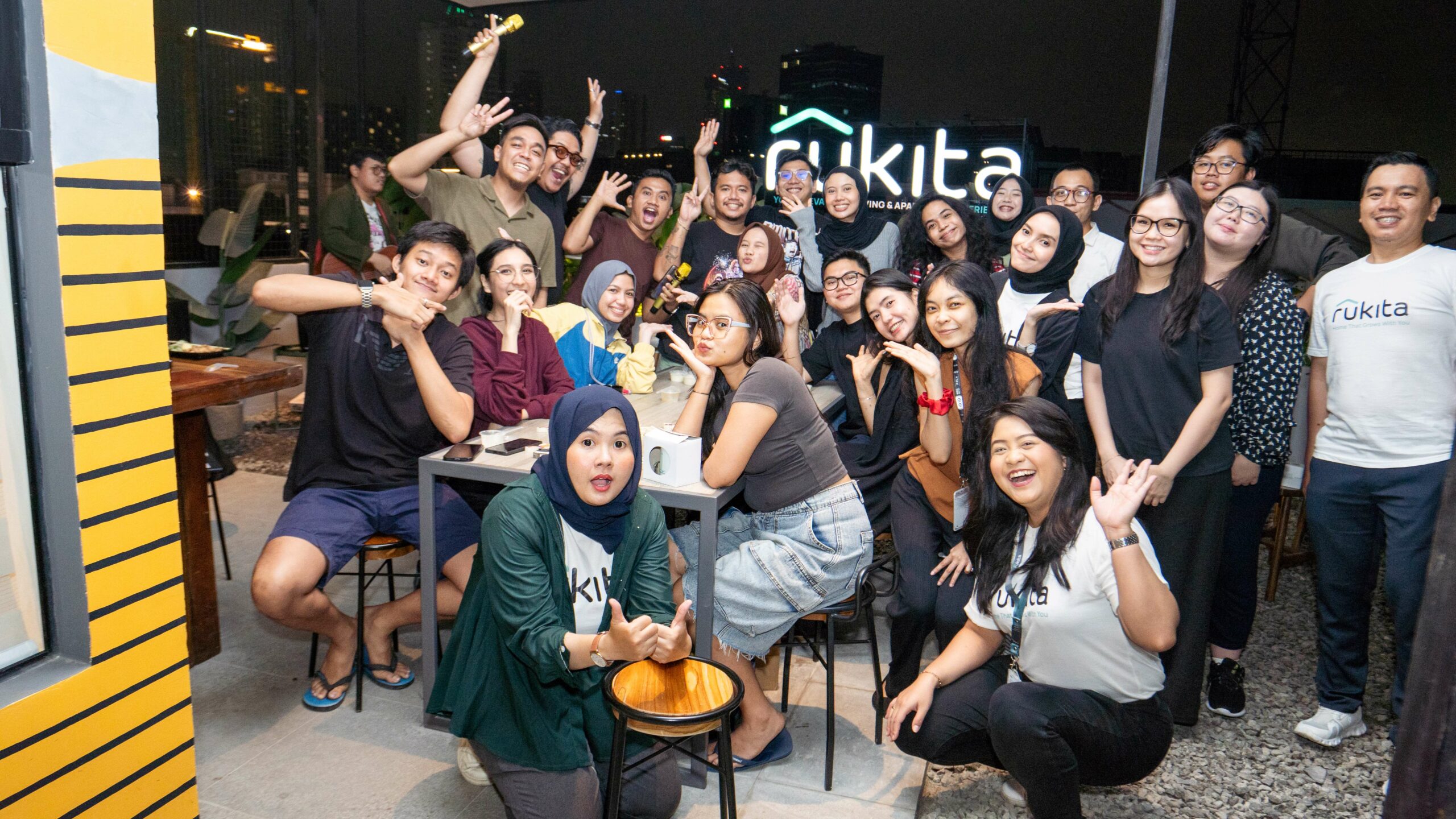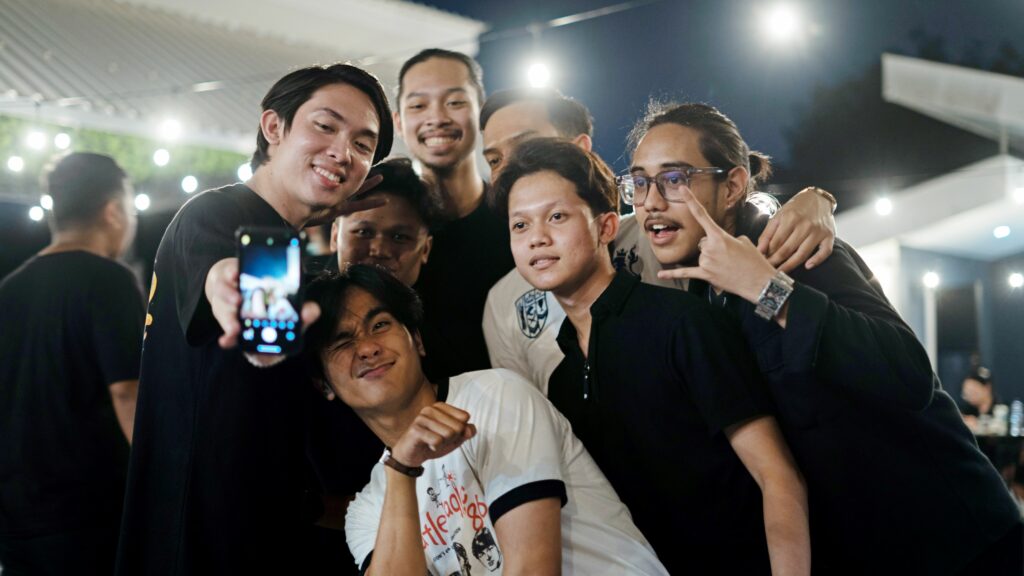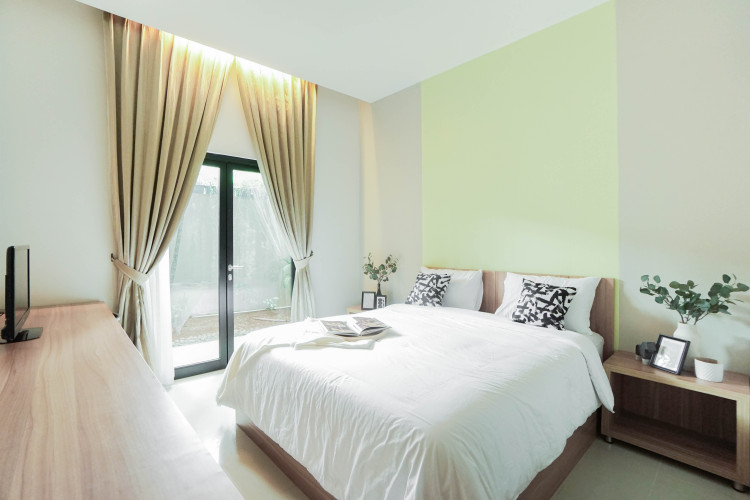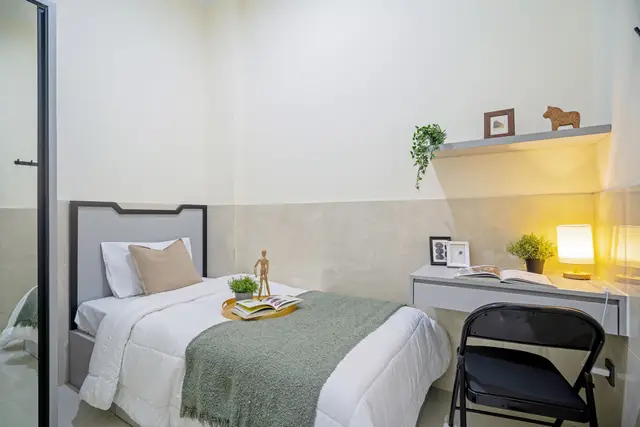Loneliness Among Gen Z: How Rukita Builds Coliving That Bring People Together

Living alone doesn’t have to mean feeling lonely with Rukita.
As Indonesia’s younger generations navigate the fast-paced realities of urban life, a silent issue continues to grow, loneliness. Despite being the most digitally connected generation, Gen Z reports higher levels of isolation and emotional disconnection than any generation before them.
According to the Indonesia Millennial and Gen Z Report 2025 by IDN Research Institute, mental well-being has become one of the top concerns for young Indonesians, with many struggling to balance the pressures of work, social life, and self-identity in a hyperconnected world. This growing loneliness is not just an emotional struggle, it’s a societal challenge that calls for collective solutions.
As part of its commitment to the Social aspect of ESG (Environmental, Social, and Governance), Rukita recognizes the importance of fostering community, inclusion, and mental well-being among its residents better known as Rukees.
Understanding the Loneliness Epidemic Among Gen Z

Despite living in a time of unprecedented digital connectivity, Gen Z is facing what psychologists call a “connection paradox.” They are constantly online, yet increasingly feel alone.
The Indonesia Millennial and Gen Z Report 2025 highlights how social media has become both a lifeline and a source of anxiety, with many young people reporting stress and loneliness despite or because of their online presence. Urbanization has also played a major role. As more young professionals move to big cities for education or work, traditional family and community bonds weaken.
Data from the same report shows that Gen Z in large urban areas are less likely to feel close to their extended families compared to those living in smaller towns. In short, modern city living often comes at the cost of human connection.
Why Community Matters More Than Ever

Human beings are wired for connection, and a sense of belonging plays a crucial role in maintaining mental and emotional health. For Gen Z, who value authenticity and shared purpose, finding such belonging in big cities can be difficult. This is where community-driven living models like coliving come into play.
Beyond just offering a place to sleep, coliving spaces provide an ecosystem where residents can meet, collaborate, and support one another. A recent global study on coliving trends found that residents who participate in community activities report higher happiness and lower loneliness levels compared to those living alone in private apartments.
Rukita Building Homes That Bring People Together
Rukita believes that a home should do more than just provide a place to sleep. It should make people feel safe, supported, and connected. That’s why Rukita’s coliving concept is designed with community at its heart. Every shared kitchen, lounge, and rooftop isn’t just an amenity, it’s an open invitation for people to meet, talk, and build new friendships naturally.
Residents, known as Rukees, often start as strangers. After a few weeks of sharing the same spaces, like having morning coffee in the kitchen, chatting before work, or enjoying weekend meals together, something begins to change. Familiar faces slowly turn into friends, and what once felt like just a rented room starts to feel like home.
It is in these small everyday moments that the spirit of Rukita truly comes alive. When people connect sincerely, even simple activities such as cooking dinner, watching a movie, or working side by side in the lounge can turn into meaningful experiences. In a world where it is easy to feel alone, Rukita reminds its residents that they are never really by themselves.
A Home that Grows with You

Loneliness often thrives when people feel unseen or unsupported. That’s why Rukita pays attention not just to physical comfort, but also to emotional well-being.
Community managers at each property play an important role, welcoming new residents, organizing small gatherings, and helping everyone feel part of something. Whether it’s a casual chat in the common area or a weekend yoga class, every touchpoint is designed to remind residents that they belong to a larger community.
This approach reflects Rukita’s commitment to the “Social” pillar of ESG (Environmental, Social, and Governance), showing how each property is designed not only to be a sustainable building but also a living environment where people can grow together, both personally and socially.
As the world moves faster and cities get busier, the need for real connection becomes more important than ever. Rukita understands that creating a sustainable home isn’t just about providing space, it’s about nurturing the people who live in it. Every design choice, every event, and every shared moment reflects one purpose: to help people feel connected again.
Don’t forget to download Rukita app via Google Play Store or App Store or visit www.rukita.co. Follow Rukita’s Instagram account @rukita_indo, X account @rukita_id, and TikTok account @rukita_id to get the most recent information and other interesting deals!
Bagikan artikel ini

